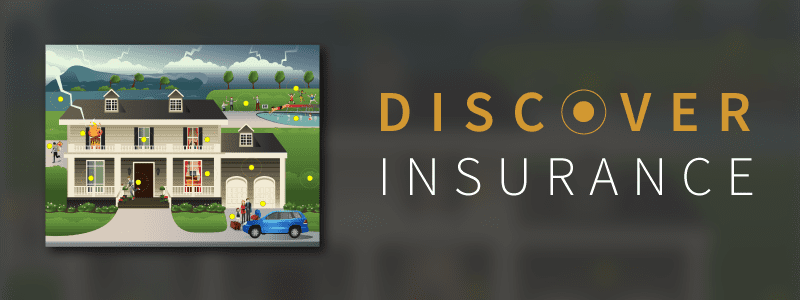
When it comes to manufacturing liquor, there is a lot of specialized and expensive equipment involved. If that equipment no longer works, liquor can no longer be distilled. You lose valuable time and profits while repairs are being made.
In many cases, equipment breakdown and malfunction is not covered under a standard commercial property insurance policy. Obtaining systems breakdown insurance can help cover the costs of repairs to damaged equipment and even replacements if it is beyond repair. Some policies can also reimburse you for potential lost profits.
Environmental liability exposures are not just for oil companies, nuclear power plants, and industrial mining and logging operations. Distilleries have wastewater and waste management concerns. Depending on the location of your distillery, previous use of the property and impact on surrounding land could also be a concern. Strict liability laws apply to the distilling industry, and the costs of violating those can add up quickly.
The majority of general and commercial liability policies have environmental and pollution exclusions. Obtaining a standalone environmental insurance policy can help provide coverage for the environmental liabilities your distillery faces. It can also be a good public relations tool to show your commitment to protecting our environment.
If you sell your liquor, offer tastings, operate a bar, or in any way serve alcohol to patrons on your premises, your distillery is open to liability claims. A lawsuit can arise if a patron gets inebriated at your distillery and causes injury or property damage, even after they leave your property. Those costs can add up fast.
It’s important that if you in any way serve or sell alcohol to your patrons that you obtain the proper liquor liability insurance to protect your distillery from potential financial losses. Having the proper coverage in place can help cover the costs of lawyers, court fees, and any civil and criminal damages that arise from an incident involving liquor.
Spoilage and contamination of your craft liquors, both before and after delivery, are risks your distillery faces. Whether it is from a machine breaking down or a foreign substance entering your latest batch, costs can add up fast. From loss of revenue to purchasing additional materials to remake the product and more, your business could be faced with a significant financial burden.
Spoilage and contamination insurance can help your distillery cover the costs associated with a ruined batch of product, both before or after delivery. This coverage can supplement your standard commercial property and general liability policies.
Every manufacturer, including distilleries, faces the possibility that an issue can arise with a product after it has been distributed. The costs of dealing with a recall can add up, involving lost time, extra shipping costs, and lost revenue. Your reputation can also suffer because of a recall, adding even more strain to your distillery’s finances.
Having the proper product recall coverage in place can help your business prepare for the event of a product recall. This coverage can help cover the costs of removing the recalled product from the marketplace. Some policies even cover the costs associated with restoring your brand’s reputation, including things like advertising and promotions.
When it comes to distilling craft liquors, ingredients matter. Often it is more about quality than quantity, and in some cases this can put your business at risk. If a supplier cannot deliver what you need on time, your business could be faced with a potential loss of revenue due to the interruption.
There are many risk management methods your distillery can put into place to avoid potential losses due to supply chain interruptions—such as maintaining relationships with back-up suppliers and monitoring the resource environment—but even the most diligent business cannot always prevent an interruption. Supply chain coverage can help compensate your distillery for certain financial losses during the interruption to your business.
As a distillery, your business is all about producing a finished good, in your case, liquor. That means not only does you have stock and inventory in the form of the raw materials for production, you also have it in the form of your finished goods. If something happened to either your raw materials or your finished liquors, your business could face significant financial losses.
Stock and inventory are typically covered under a general commercial property policy, but you’ll want to make sure your policy has the right amount of coverage you need. Especially since insuring stock and inventory can be tricky, since values can be hard to pin down due to a variety of factors. You’ll want to make sure your policy offers you the right amount of coverage with flexibility to handle value fluctuations.
On average, it’s estimated that three out of five businesses will be sued by their employees. While there is nothing you can do to prevent someone from filing a lawsuit, you can limit the costs of defending a legal claim with proper insurance coverage.
Obtain employment practice liability insurance (EPLI) to protect your business from alleged employment-related acts such as wrongful termination, failure to promote, discrimination, and sexual harassment.
If your distillery is open to the public, you are responsible for the well-being of patrons. This risk is amplified if you offer distillery tours. One accident can see your business facing significant costs.
Avoiding accidents often comes down to thorough risk management, such as keeping tours to pre-planned routes through the safe areas of your distillery. However, accidents do happen, and general liability insurance can help provide coverage for your business to cover costs associated with personal injury-related claims.
If one of your tanks leaks or collapses, you could be facing the loss of a lot of product and the costs to reproduce it.
An extension of your commercial property insurance, tank leakage and tank collapse coverage can help your distillery cover the costs associated with malfunctions of your tanks. They can help reimburse you for the lost raw materials and can also help cover replacements so you can make a new batch of liquor.
Fire, theft, and other disasters can cost your distillery thousands upon thousands of dollars in damages, especially if it impacts your stills and other expensive equipment. With risks like explosion from secondary fermentation, water damage from wastewater, and more, it is important to have the right coverage in place.
Commercial property insurance can help protect the property your business owns or leases, including things like equipment, inventory, furniture, and fixtures. Whether you own your building or lease the space, commercial property insurance can be purchased separately or can be combined with other necessary coverage to protect your business’ physical assets. However, there are limits on what commercial property insurance typically covers, so be sure you get any additional policies you may need to cover things like equipment breakdown and inventory.
Automobile exposures are significant, especially if you handle your own distribution. Bodily injury and property damage to both your employees and others involved in accidents can put your business at serious financial risk.
Business auto insurance protects vehicles owned by your distillery and provides coverage for damages related to the use of the vehicle for business purposes. If you use a fleet of vehicles, fleet insurance can help to cover numerous vehicles at once. Also, if your employees use personal vehicles for business purposes, you’ll need hired and non-owned auto liability insurance.


